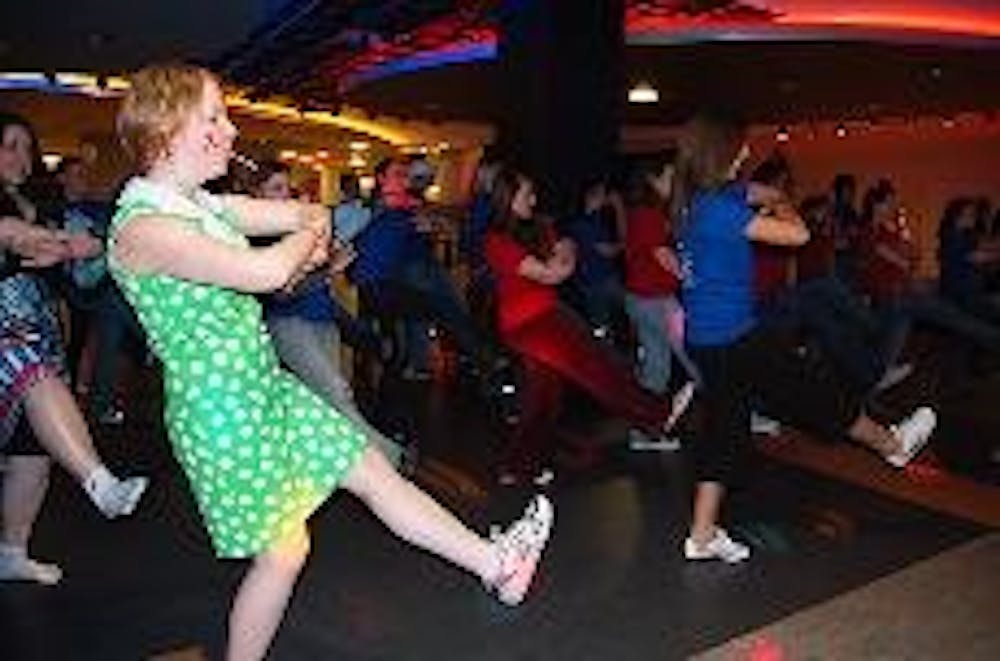Correction appended
Ward 3, where AU is located, had the lowest incidence of newly diagnosed AIDS and HIV cases in D.C. from 2001 to 2006, according to a report recently released by the D.C. Department of Health.
The report, which was released Nov. 26 to coincide with World AIDS Day 2007, is the first data gathered on HIV in D.C., according to a statement released by Mayor Adrian Fenty.
"This report gives us critical statistics on HIV and AIDS in our city, and we must take advantage of this information with the sense of urgency that this epidemic deserves," he said in the statement.
There were 38 diagnoses of HIV and 42 diagnoses of AIDS in Ward 3 during that time period. The highest rates of newly diagnosed AIDS and HIV cases were in Wards 1, 6 and 8. Ward 1 contains the neighborhoods of Adams Morgan and Columbia Heights; Ward 6 contains Capitol Hill and Chinatown; and Ward 8 contains Anacostia and Congress Heights.
There were 426 new HIV cases and 520 newly reported AIDS cases in Ward 1; 470 new HIV cases and 536 newly reported AIDS cases in Ward 6; and 447 newly reported HIV cases and 570 newly reported AIDS cases in Ward 8, according to the report.
Many children in the District are born with HIV despite medical treatment that can prevent transmission from mother to child, according to the report. D.C. children account for 9 percent of all pediatric AIDS patients in the country.
Men and women ages 30 to 49 were the largest number of new cases found. Blacks account for 57 percent of the city's population, but 81 percent of new HIV cases, according to the report.
D.C.'s infection rates top those in Philadelphia, Baltimore, New York City, Detroit and Chicago.
The D.C. government needs to increase its response to AIDS, Fenty said in the report.
"We have to increase our outreach, improve availability of services and innovate with best practices and evidence-based approaches to fight this life-threatening virus," he said.
Last week also marked AIDS Awareness Week at AU, which included a variety of activities to continue raising awareness and fight the disease.
Keith Joyner, a freshman in the College of Arts and Sciences and AU Pre-Health Society treasurer, volunteered to pass out HIV/AIDS ribbons and informational pamphlets during International AIDS Day.
Joyner said he was astonished to learn about the HIV/AIDS statistics in D.C.
"For a place to be so economically rich, it's crazy that people are still not practicing safe sex," he said.
Ward 3 had a poverty rate of 7.5 percent in 2000 and an average family income of $187,709 in 1999, according to NeighborhoodInfo DC, a Web site that compiles data about the city. Ward 1 had a poverty rate of 22 percent in 2000 and an average family income of $59,140; Ward 6 had a poverty rate of 21 percent in 2000 and an average family income of $67,454; and Ward 8 had a poverty rate of 36 percent and an average family income of $35,228.
International student adviser Christy Nichols said she worked in Africa for three years and was surprised the D.C. statistics were similar to the ones she encountered while working in Zambia.
"We have advanced meds here," she said. "It's just hard to believe."
It is unfortunate the nation's capital is suffering in health care, said Alex Devendorf, a sophomore in the School of International Service and a member of Alpha Epsilon Phi. The Elizabeth Glaser Pediatric AIDS Foundation is one of the sorority's philanthropies.
"Congress should stop spending money on frivolous things and start spending more on health care," she said.
Correction: The photo caption incorrectly notes that Ravenna Motil-McGuire organized the dance marathon. While Motil-McGuire organized the week, Laiah Idelson and Alyssa Geisler actually organized the dance marathon.





